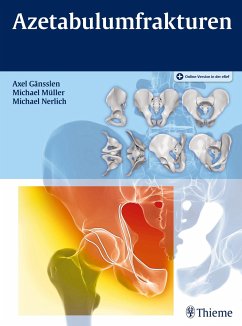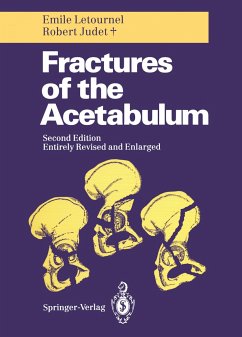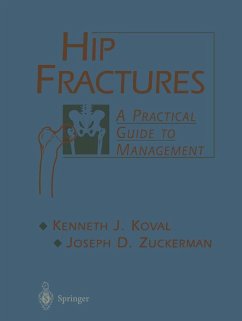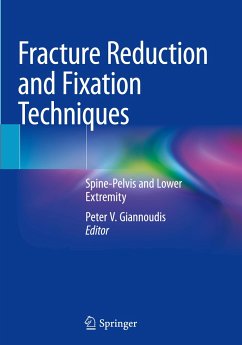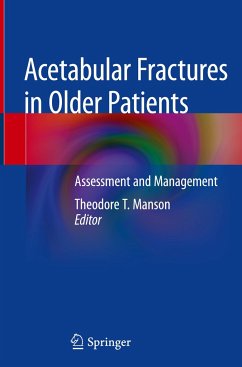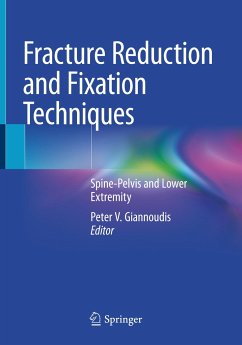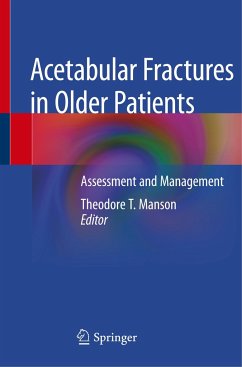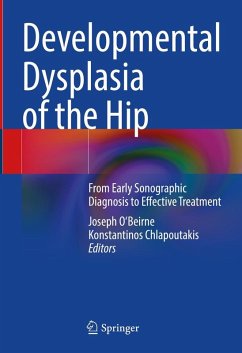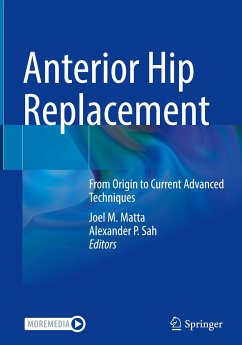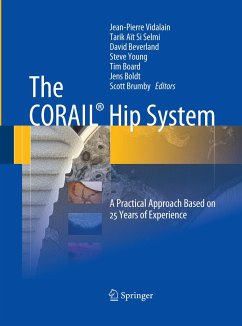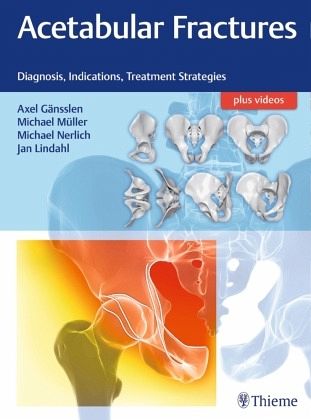
Acetabular Fractures
Diagnosis, Indications, Treatment Strategies

PAYBACK Punkte
105 °P sammeln!
Enclosed within the deep and complex structures of the hip joint and the surroundings, acetabular fractures confront the orthopaedic surgeon with great challenges. A number of critical neurovascular structures in the vicinity are imperiled; the hip joint itself requires utmost care in surgery to preserve biomechanical stability over the long term and to postpone the development of posttraumatic osteoarthritis in the young to middle-aged patient collective.It is the goal of this work to provide the surgeon with strategic tools to diagnose and evaluate the types of acetabular fractures to arrive...
Enclosed within the deep and complex structures of the hip joint and the surroundings, acetabular fractures confront the orthopaedic surgeon with great challenges. A number of critical neurovascular structures in the vicinity are imperiled; the hip joint itself requires utmost care in surgery to preserve biomechanical stability over the long term and to postpone the development of posttraumatic osteoarthritis in the young to middle-aged patient collective.
It is the goal of this work to provide the surgeon with strategic tools to diagnose and evaluate the types of acetabular fractures to arrive at the optimal individual indication, thus taking a fracture-anatomy-guided approach to reduction and fixation.
Key Features:
- Eminently practical approach using more than 400 brilliant photographs, radiologic images, and drawings
- An emphasis on anatomical joint reconstruction to ensure the longest possible survival of the joint
- Discussion on age-specific problems and complications, such as osteoporosis, thromboembolism, and more
Acetabular Fractures will be welcomed by orthopaedic and trauma surgeons, as well as by residents and fellows, in these fields.
It is the goal of this work to provide the surgeon with strategic tools to diagnose and evaluate the types of acetabular fractures to arrive at the optimal individual indication, thus taking a fracture-anatomy-guided approach to reduction and fixation.
Key Features:
- Eminently practical approach using more than 400 brilliant photographs, radiologic images, and drawings
- An emphasis on anatomical joint reconstruction to ensure the longest possible survival of the joint
- Discussion on age-specific problems and complications, such as osteoporosis, thromboembolism, and more
Acetabular Fractures will be welcomed by orthopaedic and trauma surgeons, as well as by residents and fellows, in these fields.




